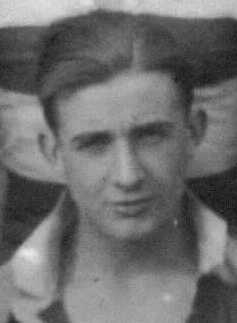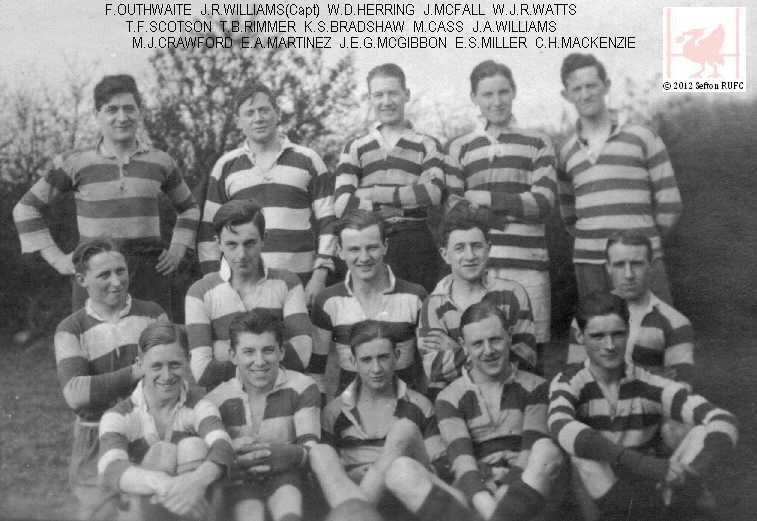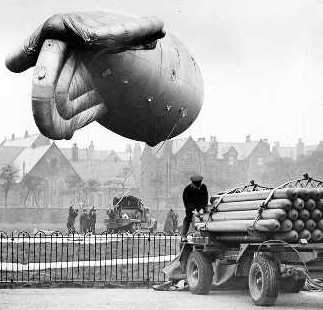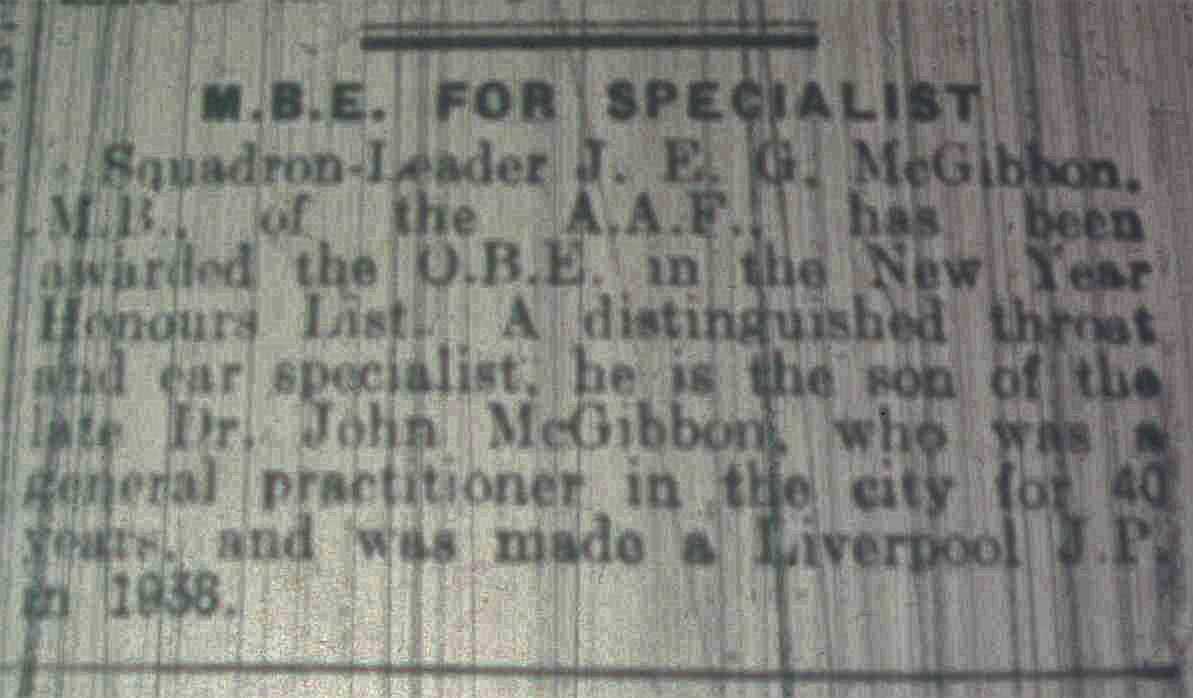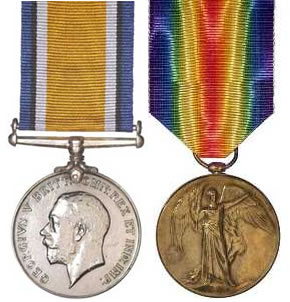Alien Doc Tends Balloon
Party
Written and researched by David
Bohl,
with the kind help of the British Medical Journals
John Edward George McGibbon was born 1893 in
Liverpool, the son of Dr John McGibbon of Edinburgh and lived in
Durning Road, Edge Hill with his brother and two sisters. He was
educated at Liverpool College and the University of Liverpool and
graduated M.B., B.S. from London University in 1917. He paraded in the
ranks of the university section of the Field Ambulance in early 1914
but these volunteers were soon ordered back to complete their medical
studies, and he was later commisioned a temporary
Surgeon
Lieutenant in
the Royal Navy.
Demobilized in 1919 he joined the reformed Aliens (now the suitably
renamed
Sefton Rugby Club) with a number of other
Doctors, see
Sefton
Doctors, and entered consulting
and hospital practice at St Helens,
Bootle General and the Providence hospital.
During
the inter-war years he was
associated with the Royal Southern, the Eye and Ear Infirmary and Alder
Hey Childrens. In 1927 he gained his D.L.O (Diploma in Laryngology and
Otology).
He entered the
Auxiliary Air Force as a flying officer in 1939 and volunteered again
as war broke out, but this time commissioned in the RAF as a Flight
Lieutenant. He was placed in medical charge of the personnel serving
the balloon barrage over Liverpool. The
balloons
of No.921 West Lancashire Squadron were a familiar
sight preventing bombers from attacking below 5,000 feet.
Liverpool also experimented with 220 "
free
balloons" that exploded when
there was contact with the wires.
Despite the blackout being enforced, German planes were easily able to
find Liverpool from the Welsh coast, navigating by radio beams and the
lights of neutral Dublin. On the 29th November 1940, during the
heaviest air raid to date, a
parachute mine hit the Junior Instruction Centre in
Durning
Road where he once lived,
collapsing the shelter below and
crushing many of its 300 occupants, I'm pretty sure Dr McGibbon would
have been involved in the aftermath.
His special knowledge was soon applied to investigate such problems in
aviation medicine as otitic baratrauma, rupture to the middle ear
vessels
during
descent in aircraft and also seen in
divers. In the Journal of
Laryngology
and Otology of January 1942 he produced an article on Aviation Pressure
Deafness.

For
his war services he was awarded an
O.B.E in the 1944 New Year Honours (the Echo "M.B.E" headline is
obviously incorrect)
After
WW2 he was
made a vice-president of the Royal Society of Medicine and had many
professional activities with the United Liverpool Hospitals.
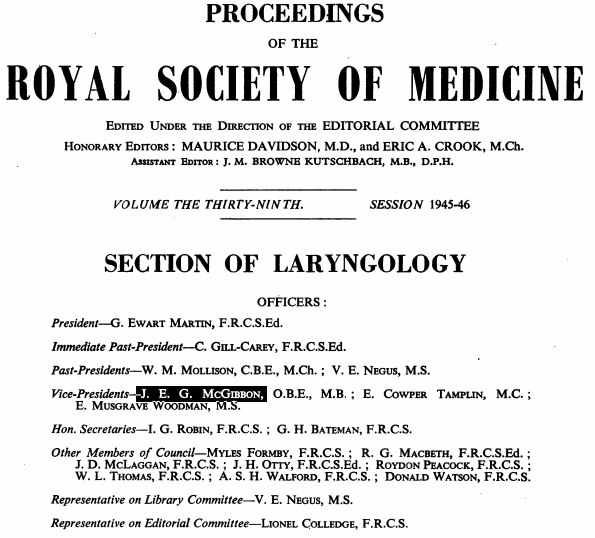
After
his
retirement he was pleased to be made honorary consultant and jointly
made a comprehensive textbook on diagnostic bronchoscopy. In due time
he succeeded in lectureship in the department of laryngology at
Liverpool University and as a teacher of nurses in the Royal Southern
hospital, his kindness to the younger trainees was much appreciated.
|
|
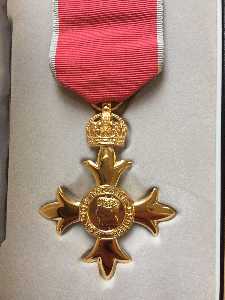 |
|
WW1
British War and Victory Medals
|
Order
of the British Empire
|
It
did not surprise his
colleagues that Dr McGibbon had died within a few hours of his last
work on October 25th 1959
Dr John
Edward George McGibbon OBE M.B B.S D.L.O
